Five of the UKs largest retailers Tesco, J Sainsbury, Wal-Mart (ASDA), Morrisons and Marks and Spencer are all seeking to obtain zero waste to landfill by 2015 or sooner, a letsrecycle.com survey has found.
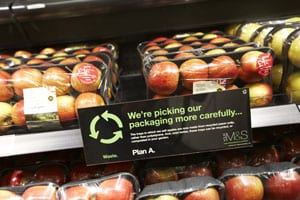
This months letsrecycle.com survey covered the top 10 retailers and found that they are all pursuing a raft of ambitious targets in an effort to improve their corporate social responsibility standing.
These range from zero waste pledges to lightweighting policies to attempts to increase consumer awareness of recycling.
And, while leading retailers have an increased intention of achieving zero waste to landfill, the John Lewis Partnership claims a zero waste to landfill is unobtainable.
The retailer claims that this is due to a small amount of residual waste that would remain from contaminated material and energy-from-waste processes.
In the research it emerged that the waste and recycling services of the top 10 retailers in the UK are provided by about 18 firms.
On the contractor side, the survey found a competitive sector, with a total of 18 firms providing waste and recycling services. DS Smith Recycling (formerly Severnside Recycling), Veolia and Biffa emerged as three of main waste and recycling companies serving the retail market.
On the compliance side, Valpak and BatteryBack possess large market shares for batteries and waste electrical and electronic equipment (WEEE). BatteryBack is a compliance scheme created and operated by Veolia and Leeds-based WasteCare.
The list of top 10 retailers is based on information on revenues accumulated from company documents, as well as information for 2008/09 gathered from financial services Deloitte and trade publication Retail Week.
They are, in descending order: Tesco, J Sainsbury, Wal-Mart (Asda), WM Morrisons, Marks & Spencer, Alliance Boots, DSG International, John Lewis Partnership, Co-operative Group and Home Retail Group.
Performance
The governments existing onus on tackling retail sector waste mainly been focused on limiting packaging waste, with so-called excessive packaging in supermarkets being identified as a particular bugbear of campaign groups.
This is in addition to initiatives to reduce single-use carrier bags and voluntary agreements such as the Courtauld Commitment, which entered its second phase in January 2011 (see letsrecycle.com story).
Industry experts claim that, in addition, growing consumer pressures to improve environmental performance has also pushed companies into seriously addressing matters such as waste reduction and zero waste to landfill.
Commenting from a contractor stand point, Tim Price, national commercial manager at DS Smith Recycling, said: We have seen a real difference in terms of presence and focus from the retail and commercial sectors on waste management and sustainability over the past couple of years.
Although there is a long way to go, some major contributions to act more sustainably have already delivered some impressive results in terms of limiting the impact that the retail industry has on our environment here in the UK, and indeed all over the world.
Food
George Pearce, head of commercial accounts for the retail sector at Biffa, agreed that the increased public attention was forcing retailers to assess their methods. With the amount of pressure [from customers], we are having to help retailers come up with some innovative waste treatment methods, he said.
One area that has emerged as a key concern for retailers, particularly those operating supermarkets, is food waste. Biffa is currently working closely with J Sainsbury to help the company meet an ambition to treat all its food waste through anaerobic digestion.
Food waste, for example, is something we increasingly have to look at and Biffa realises that food is becoming quite a big area and its one area they look at, as there is so many methane emissions involved in biodegradable waste, says Mr Pearce.
| Rank | Company | Contractor | Material |
|---|---|---|---|
| 1 | Tesco |
BatteryBack PDM Group Severnside J&A Young |
Batteries Meat waste Paper, metals, glass, organics Plastic |
| 2 | J Sainsbury |
Biffa PDM Group Recolight Valpak |
Food waste Food waste Bulbs and lamps Batteries, phone chargers |
| 3 | Wal-Mart (Asda) |
BatteryBack Veolia Veolia PHS “Third party specialists” |
Batteries Cardboard and paper Residual and food waste Data protection Regionally placed for other elements |
| 4 | WM Morrison Supermarkets | BatteryBack |
Batteries Declined to reveal further |
| 5 | Marks & Spencer |
Severnside Shanks |
Paper and cardboard Residual and food waste |
| 6 | Alliance Boots |
Veolia Greenzone PHS Smurfit-Kappa Linpac (Regain) Glass UK |
Mixed dry recyclables Hazardous/residual waste Clinical waste Paper and plastic Some plastics Glass |
| 7 | DSG International |
environComm Biffa |
WEEE Food and general waste |
| 8 | John Lewis Partnership |
Smurfit Kappa ECO Plastics BiogenGreenfinch Flo Pak |
Cardboard and some paper Mixed plastics Food waste Polystyrene |
| 9 | Home Retail Group | Declined to reveal | Declined to reveal |
| 10 | Co-operative Group |
Severnside Jayplas Biffa Valpak |
Cardboard Plastics General waste Battery compliance |
Breakdown
Tesco
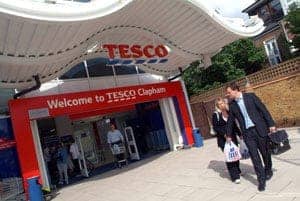
As of February 2010 when the most recent data was made available, Tesco report an annual turnover of 62.5 billion. And, a share-data report published in December 2009 indicated that Tesco possesses a market share of around 30.5% and operates 2,482 stores in the UK.
In waste and recycling, Tescos primary contractor is DS Smith Recycling (formerly Severnside Recycling) which handles its paper, metals, glass, organic and general waste.
In addition to this Tesco has worked with Doncaster-based PDM Group to generate electricity from leftover meat waste and also has a contract with plastics recycling firm Jayplas to handle some plastics material.
Batteries are handled by BatteryBack a compliance scheme formed by Veolia Environmental Services and WasteCare.
One key area of focus for the retail giant is packaging reduction, with it having set a packaging weight reduction target by 25% by 2010. However, it has revised this goal in its 2010 Corporate Responsibility Report to attempt to achieve a 10% reduction by the end of 2010. The results of this are expected to be published shortly.
Tesco has also been aware of the impact of its offers on food waste and, in January 2010, made moves to curb its Buy One Get One Free campaign on perishable items (see letsrecycle.com story).
J Sainsbury

The company, more commonly known as Sainsburys, is placed second amongst the UKs largest retailers with a 21.4 billion for turnover including VAT in March 2010.
J Sainsbury has focused its environmental efforts on food waste. The company has signed food waste treatment deals with both Biffa (see letsrecycle.com story) and PDM Group (see letsrecycle.com story).
The move is intended to help J Sainsbury divert 30,000 tonnes of food waste from landfill each year and coincides with the companys ambition to send all of its food waste to anaerobic digestion – a goal it had hoped to achieve by the end of 2010.
At present, according to its 2010 Corporate Responsibility Report, J Sainsbury recycles 125,000 tonnes of cardboard each year and 8,500 tonnes of plastic film. However, J Sainsbury declined to reveal who held these contracts due to commercial confidentiality. Waste management firm Biffa is understood to handle paper, card, plastic, glass and cans for a number of Sainsburys outlets.
Elsewhere, the company highlighted its efforts to tackle WEEE and waste batteries. J Sainsbury said it collected for recycling over 250,000 batteries since February 2010 in conjunction with compliance scheme Valpak, as well as recycling phones and phone chargers with the compliance scheme.
Furthermore, Sainsburys is one of the first retailers to introduce in-store light bulb recycling facilities through an arrangement with specialist lamp compliance scheme Recolight.
Wal-Mart (Asda)
Owned by American conglomerate Wal-Mart, Asda currently boasts a 17.1% UK market share, however, separate information on its annual turnover was not available as it is included in the overall results for Wal-Mart.
In the UK, Asda claims it has already managed to remove 90% of waste from its store operations and is successfully diverting all of its food waste from landfill. The firm carries out a backhauling process for its waste and set-up recycling facilities in its car parks to aid customers.
At present, the firm holds a cardboard recycling contract with Veolia Environmental Services and it recycled 180,000 tonnes of card and plastic in 2010.
Asda is also a member of the Veolia/WasteCare compliance scheme BatteryBack, which caters for its waste batteries. A spokeswoman for the firm said that third party specialists are used to treat other elements of the waste stream and these firms tend to work on a regional basis.
Elsewhere, the company also has a contract with secure shredding specialist PHS for the removal and disposal of sensitive data.
The company is aiming to achieve zero store waste to landfill, as well as zero construction waste to landfill, by 2015 as part of its 2011-2015 environmental plans.
Morrisons
Supermarket chain WM Morrison Supermarkets, or Morrisons, is recognised as the fourth largest retailer in the UK, with an annual turnover in excess of 14 billion. The firm, which is still owned by the Morrison family which set it up, bolstered its portfolio with the purchase of Safeway in 2004.
The company declined to reveal contractual information due to commercial sensitivity. However, it is a member of the BatteryBack battery recycling initiative (see letsrecycle.com story). And, waste management firm Biffa is understood to handle its paper and card.
Morrisons intends to achieve zero waste to landfill direct from stores by 2013. And, the retailer is also aiming to achieve a 10% packaging reduction in theenvironmentalimpact ofown brandpackaging by 2012.
Furthermore, the retailer is said to be on target to increase the proportion of store waste recycled from 72% in 2009 to 80% in 2010.
Marks & Spencer
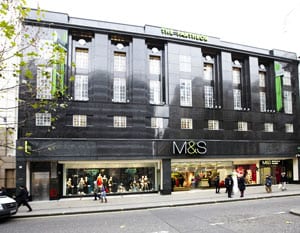
The upmarket retailer, also known as M&S, has one of the most visible sustainability campaigns in the form of its Plan A environmental initiative. This 180-point ecological and ethical programme is centred on sending zero waste to landfill by 2012.
At the heart of this initiative is a material recycling contract with DS Smith Recycling (formerly Severnside) which it signed in June 2009 (see letsrecycle.com story).
In an update on progress issued in June 2010, M&S reported that the total waste it produced in 2009/10 was 98,000 tonnes, which was down 16% from the figure reported in 2008/09. In addition, waste sent to landfill fell by 33% over the 12 month period with 46,000 tonnes of material landfilled in 2009/10.
This was set against a marked rise in the amount of material recycled, which rose from 52,000 tonnes for 2009/10 an 11% increase on the figures for 2008/09. And, in November 2010, M&S reported that it was currently recycling 92% of its operational waste, almost double the amount recycled in 2008/09.
A statement released by the firm said: Solutions are now being trialled to recycle the remaining 8% of waste, so that M&S can achieve its commitment to send zero waste to landfill by 2012.
Alliance Boots
More commonly known as Boots the Chemist, the high street store has increased its market-share since the merger of the UK-based Boots Group and German Alliance UniChem in 2006. Its overall group turnover reached 22.5 billion in 2009/10, which includes its global operations as well as its UK portfolio.
The company currently lets six waste and recycling contracts to handle waste from its 2,678 UK stores. These are broken into a mixed dry recyclables deal with Veolia, clinical waste handled by PHS, paper and plastic material catered for by Smurfit Kappa, Glass UK handling glass and Linpac now Regain also dealing with some plastics.
Hazardous and residual waste is dealt with by facilities management firm Greenzone. And, over the course of 2009/10, Alliance Boots said it had reduced the amount of material sent to landfill from 46.6% in 2008/09 to 43.1% – a decline of around 2,200 tonnes.
A breakdown of waste and recycling figures for 2009/10 shows that 23,208 tonnes (53%) was recycled, 18,887 tonnes (43.1%) was landfilled and 1,686 tonnes (3.95%) was incinerated.
DSG International
DSG International which is the firm behind Dixons, PC World and Currys achieved an 8.415 billion turnover in 2008/09, when the latest annual reports and accounts were made available.
In its 2008/09 annual report and accounts, DSG indicates that the firm intends to limit the impact of packaging waste and had recycled 53% of its total waste an increase of 13% on the previous year.
It also introduced collection routes for end-of-life electronic items in order to comply with the Waste Electrical and Electronic Equipment Regulations.
DSG signed a five-year contract with Peterborough-based environCom in March 2008 in order to process waste electrical items and help facilitate the introduction of its in-store take back scheme (see letsrecycle.com story).
A spokesman for the company confirmed that Biffa handled food and general waste for its 650 stores across the UK.
John Lewis Partnership

The John Lewis Partnership, which operates both John Lewis department stores and Waitrose supermarkets, recorded the seventh highest revenue among UK retailers, with the employee-owned firm achieving a turnover of around 6.7 billion in 2009/10.
The company intends to recycle 75% of operational waste by 2012 and, in 2009/10, saw its recycling rate increase from 43% to 50% across John Lewis stores and 50% to 53% across Waitrose stores. It also began to backhaul waste particularly polystyrene – in delivery trucks in July 2009.
Interestingly, the firm believes a true zero waste to landfill goal is beyond its reach, due to contaminated material and energy-from-waste processes leaving a fraction of residual waste which can only be landfilled.
In a similar vein to Alliance Boots, the firm has several contracts for its separate waste streams. Smurfit Kappa handles cardboard and some paper, Newcastle-based ECO Plastics caters for mixed plastic material and polystyrene is dealt with by specialist firm Flo Pak in Brackley.
One major area of focus, as outlined in the firms Corporate Social Responsibility Report for 2010, is food waste and anaerobic digestion. The company currently sends food waste to BiogenGreenfinch at Rushden in Bedfordshire for treatment.
And, John Lewis intends to send food waste from six of its Waitrose stores in the north of England to an anaerobic digestion facility in Doncaster being developed by PDM Group once it is complete.
Home Retail Group
Home Retail Group is most famous for featuring Argos and Homebase among its eight-company portfolio and, according to figures published in February 2009, currently boasts a turnover of 5.897 billion.
The firm declined to reveal its waste collection contractors on grounds of commercial confidentiality. However, in a release on the firms corporate website indicates an ambition to reduce tonnages by 25% year-on-year in 2010/11 and achieve a group recycling rate of 82% over the same period.
In 2009, the company used the firm CwikSkips for residual waste disposal.
Co-operative Group
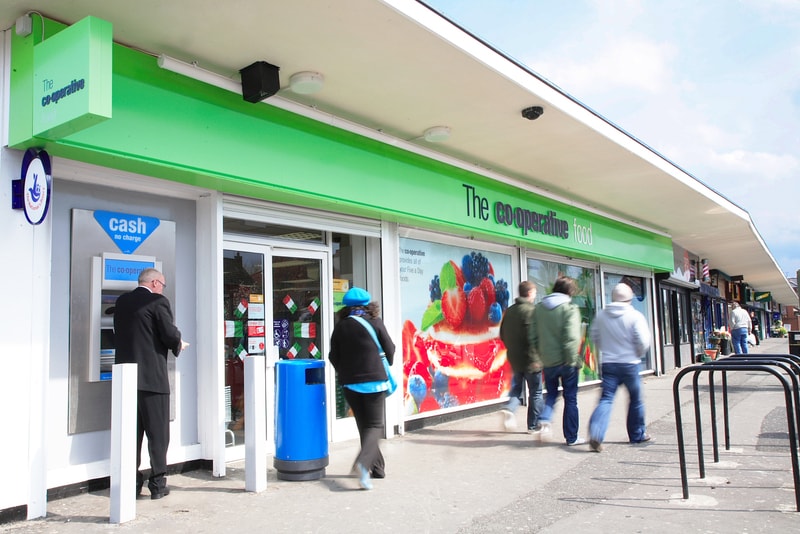
The employee-owned group has bolstered its status in recent years with the purchase of supermarket competitor Somerfield. And, in an interim report for 2009, the firm report a turnover of 6.4 billion before insurance premiums.
The Co-operative has taken moves to reduce waste arisings – producing 124,293 tonnes in 2009, down from 146,595 tonnes in 2008 and 152,549 tonnes in 2007. However, the amount of waste reused or recycled has also dropped over this period falling from 86,662 tonnes in 2008 to 72,349 tonnes in 2009.
This equates to a 7% fall in the companys recycling rate between 2008 and 2009, dropping from 57% to 52% over the course of 12 months.
In its 2009 Sustainability Report, the Co-operative said it would focus its efforts on consolidating its waste management contracts and increasing the amount of cardboard and plastic recycled by its Co-operative Food arm. It recycled 33,448 tonnes of the two materials combined in 2009.
The organisation currently holds waste management contracts with DS Smith Recycling for cardboard, Jayplas for plastics, Biffa for general waste and is a member of the Valpak compliance scheme for its battery waste.
And, the Co-operative investigated organic treatment methods for its animal by-product food waste. However, it found that the low levels of materials it produces mean that in-vessel composting and anaerobic digestion were not viable options at this stage. It has said it will reassess this as technologies develop.






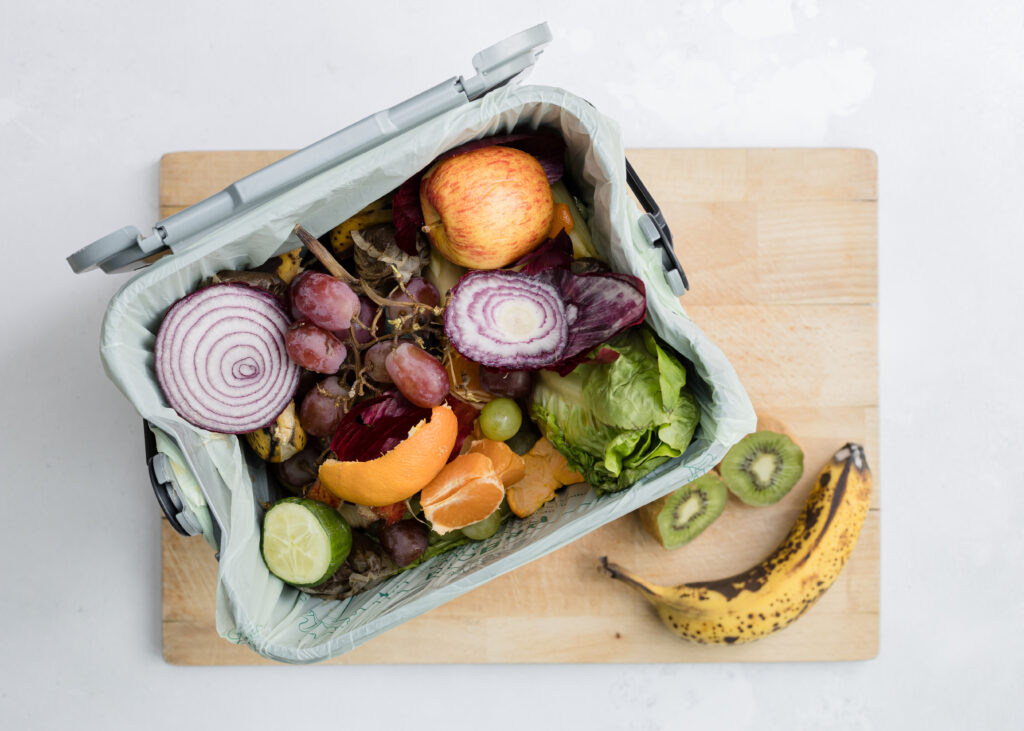

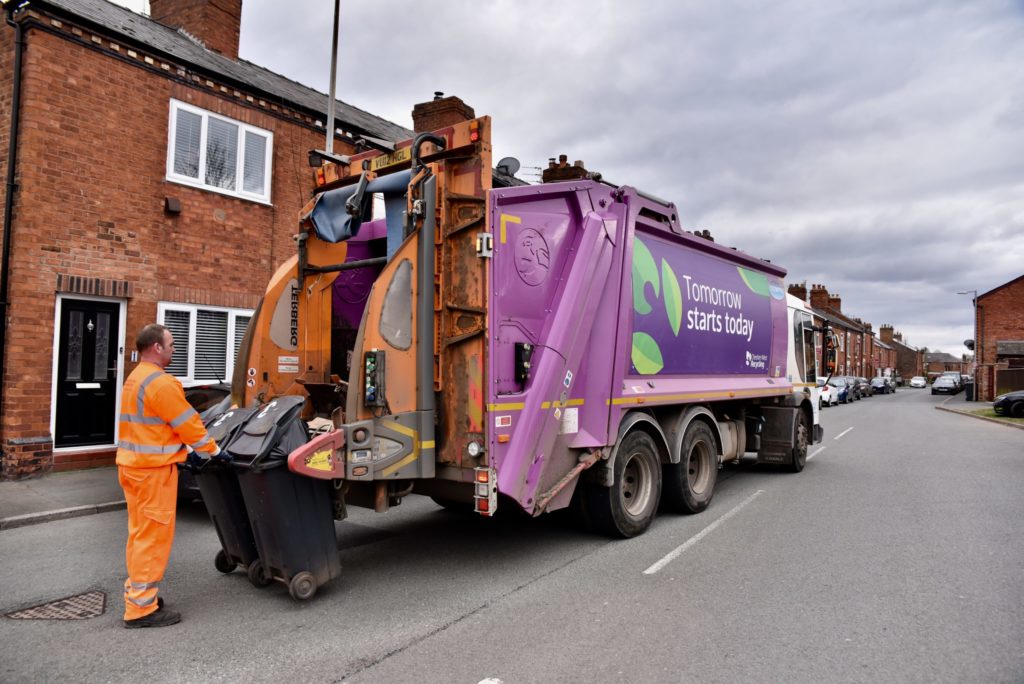


Subscribe for free